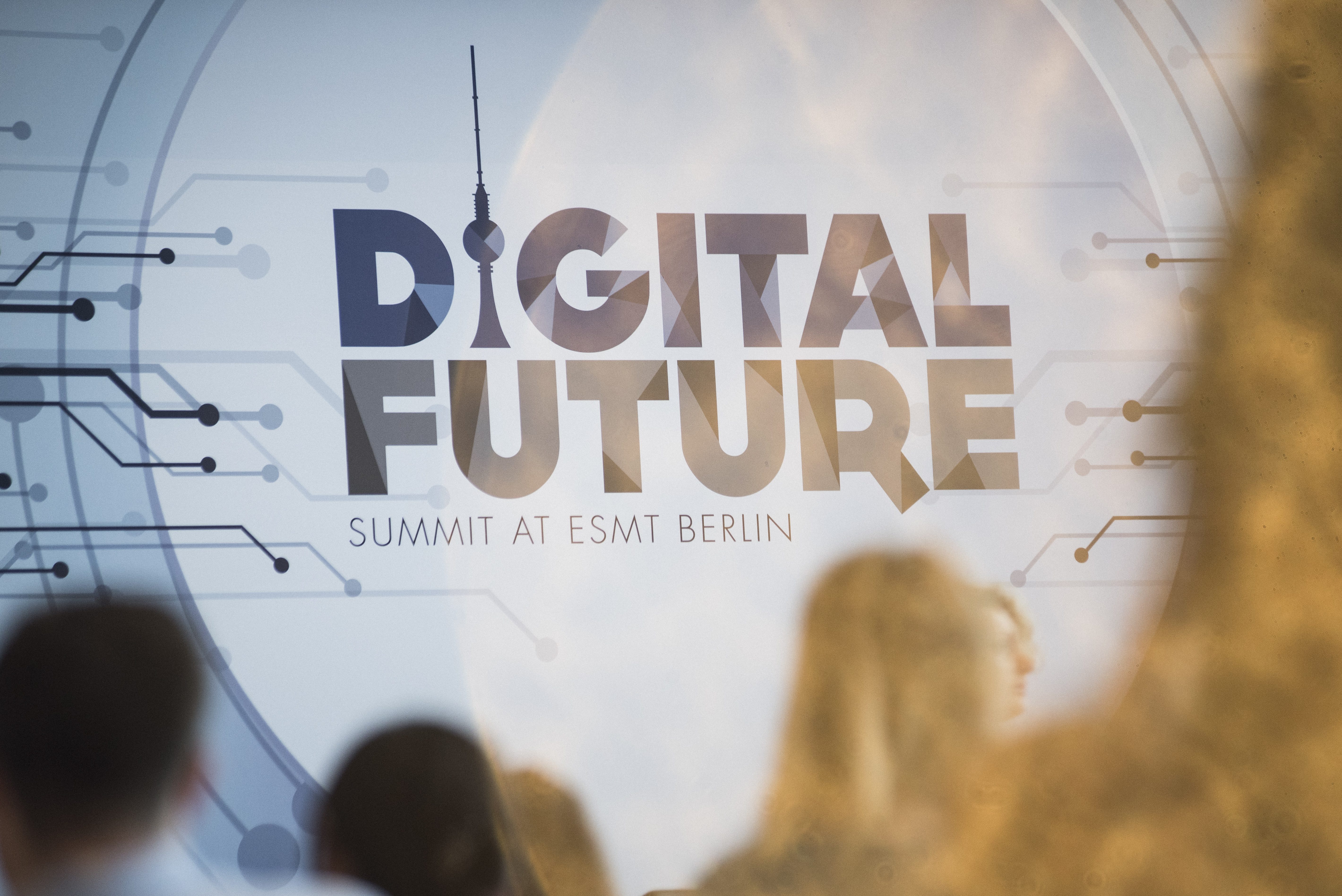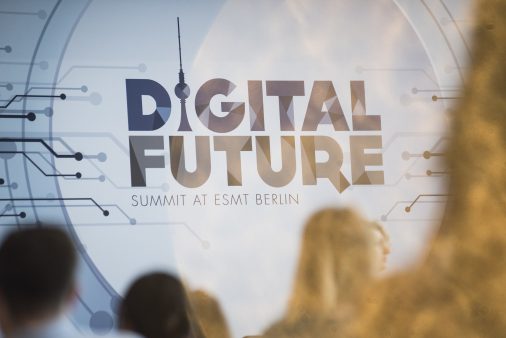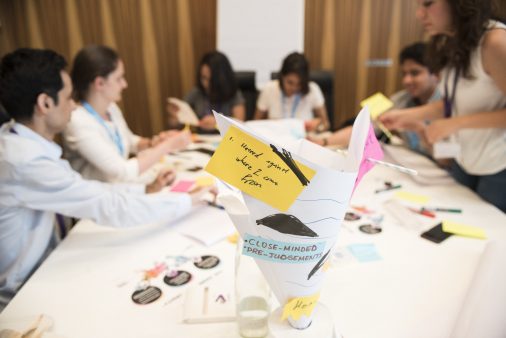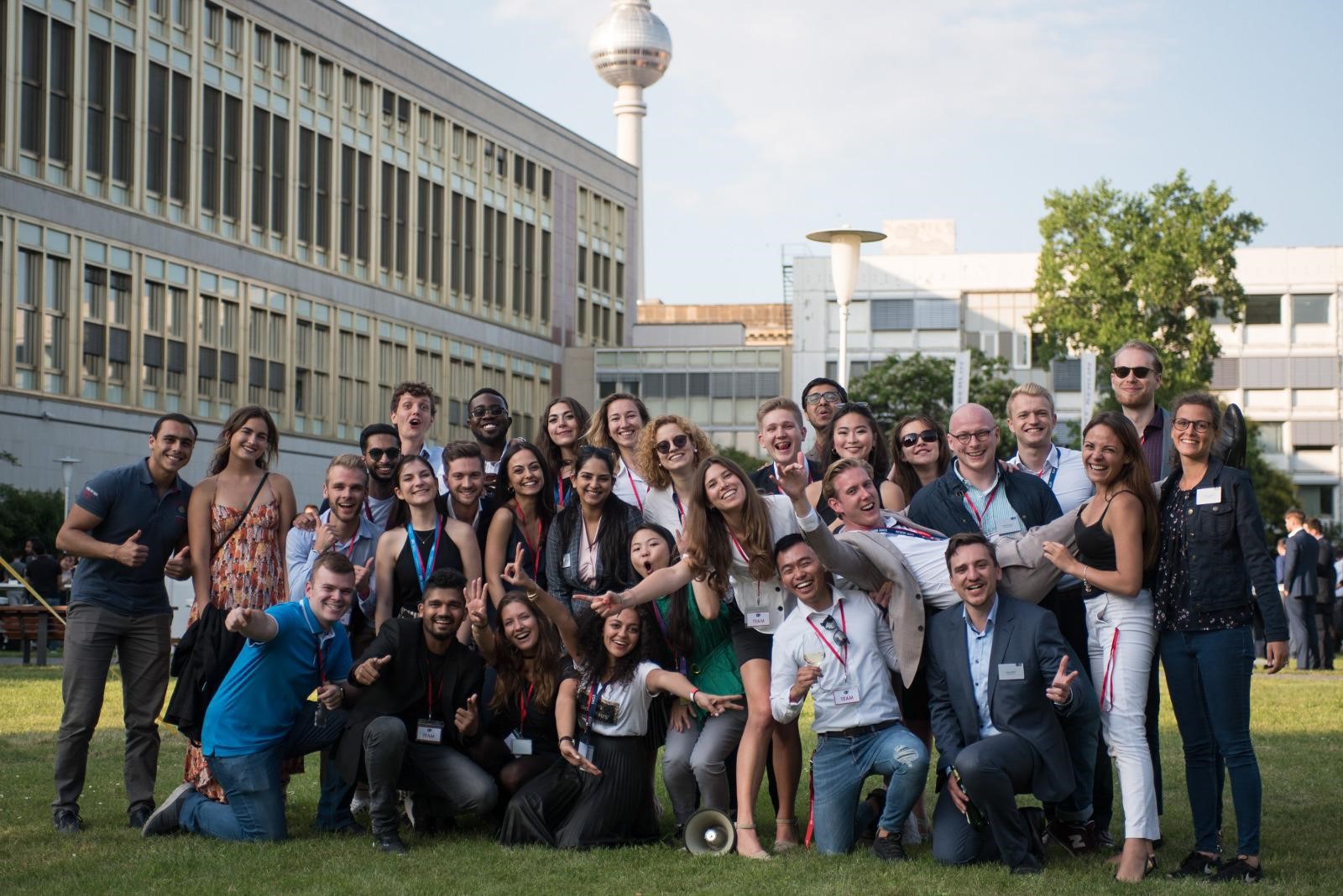

We all know the conferences where you end up wondering why you really went. Indeed, we often take away insights from mostly monotonous lectures, but there is no real fun. Experts from different industries are on stage, and as a simple participant you won’t come closer than sitting in the first row. We are constantly preaching that we should build our networks and increase the number of our LinkedIn and Xing contacts. According to a 2017 study (IAB-Stellenerhebung), around 30 percent of all new hires are based on personal contacts. How is a simple student supposed to get to these contacts and expand their network to the maximum, apart from internships?
In fact, there are several career fairs at which different companies of all sizes present their company at a stand where you have the opportunity to talk to employees. However, these events do not offer more than a brief company presentation and a small selection of vacancies. An exciting experience is a different story.
The DigitalFuture Summit was founded a few years ago by students of ESMT Berlin to discuss the constantly growing topic of digitization, which affects all industries and small start-ups as well as large corporations. The objective was to create a two-sided platform with students on the one hand and partner businesses and experts on the other. International students with different backgrounds received the opportunity to get in contact with leading experts, enrich their own knowledge, and network to accelerate their career. A constant for the event is that top executives and experts give interesting lectures, participate in panel discussions, lead engaging master classes, and interact with students in workshops (more about the different types later). Nonetheless, annual trends are always changing in the field of digitization. Thus, this year’s DFS was focused on connectivity, sustainability, creativity, and mobility.
To understand the work and processes behind the two days of the summit, let’s take a look at the phases behind the scenes leading up to the event.
The first phase started off with the formation of 4 teams with over 30 highly motivated students under the leadership of Patrick Schiebel and Sarah Ziegler. Those teams were structured in the following groups:
Strategy and Communication: Dedicated to design, shaped the topic and schedule, and provided a unique learning experience and information exchange.
Event and Participants Management: Coordinated all venue related topics to ensure a smooth event.
Partner Management: Supported the realization of DFS19 by establishing and managing partner accounts, helped to connect one with people who are active in the field of digitalization.
Finance and Legal: Managed the budget and facilitated legal coordination and communication between the work streams and other stakeholders.
The teams continued the organizational preparations for the second phase of the event by defining this year’s strategy and concept at an early stage. Followed by setting up the budgets and invitations for the participants from previous years and selected companies. Never does preparation for a big event like that go perfectly smooth. The organizers faced occasional setbacks, which lead to the identification of adequate alternatives and new solutions to ensure its success. One of the bigger goals this year was to ensure 300 participants at the event. In order to achieve this goal, it was imperative to provide a well-structured and varied agenda. Throughout 20th and 21st of June 2019 after the welcome keynote speech, participants had the opportunity to participate in four different types of sessions:
Keynotes: Listening to the views and forecasts of leading executives about the future of digitalization.
Panel Discussions: Discussions of recent market trends and expected development in the field of digitalization.
Master Classes: Interactive sessions given by experts in the field of digitalization allowing students to interact with speakers and ask advanced questions.
Workshops: Direct engagement with attendees, helping them to learn more about digitalization through case studies, discussion of problems, or presentations.

One of the challenging tasks for the teams was to secure top-class partners.Some of the companies that the DFS had the honor of welcoming to the ESMT campus were: Accenture interactivity, Accenture strategy, Amazon, AUDI, Axel Springer, BNP Paribas, BVG, heycar, Pfizer, N26, SAP, Siemens, Volkswagen, Wayfair, Simon Kucher & Partners, Huawei, Microsoft.
Besides the highlighted companies, the top managers, who provided participants with their expert knowledge and forecasts for the future, contributed to the overall content of the summit, part of those were:
- Daniel Behar, Managing Director at Accenture Strategy
- Georg Hauer, General Manager DACH at N26
- Dr. Nari Kahle, Head of social sustainability & xStarters at Volkswagen AG
- Markus Kroeger, CEO at heycar
- Dr. Karina Rigby, Vice President & Head of Siemensstadt 2.0 Project at Siemens
- Georg Tacke, CEO at Simon-Kucher & Partners
Finally, after months of preparations, two interesting days with discussions on different topics such as “Might Artificial Intelligence be the last invention of humankind?“, “The future of mobility – evolution vs. revolution: does the future belong to completely new ways of mobility models or do current ways of transportation just have to evolve?” and “Mobile banks, robo-advisor, digital wealth manager… is disruption the new normal for the traditional banking industry?” were complemented by entertainment for the participants. An e-scooter test track from Circ was set up on the site and a photobooth was also designed to capture unforgettable moments. Friday evening ended and with it the two-day event with drinks on the house in the specially rented House of Weekend at Alexanderplatz.
The highlight for many on the DFS team was the breathtaking and overwhelming feedback that was received from partners and participants throughout the event. It showed that the efforts of the past months (and in some cases more than 30 kilometers of running around during the event) were worth it.
In conclusion, one can definitely say that not only the partners and participants had a lot of fun but also the entire team! We are already looking forward to next year’s DigitalFuture Summit 2020 on the 9th and 10th of July!


Brilliant blog! Looks like everyone had a really rewarding experience at the summit. Thanks for sharing.